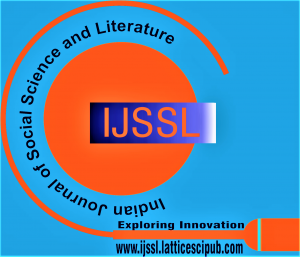![]()
Unmasking Aadhar Authentication Issues: A Case Study of Biometric and PDS Access in Mundoti, Rajasthan
Harikrishan Jakhar
Harikrishan Jakhar, Department of Culture & Media Studies, Central University of Rajasthan, Ajmer (Rajasthan), India.
Manuscript received on 08 February 2024 | Revised Manuscript received on 16 February 2024 | Manuscript Accepted on 15 March 2024 | Manuscript published on 30 March 2024 | PP: 28-31 | Volume-3 Issue-3, March 2024 | Retrieval Number: 100.1/ijssl.C111403030324 | DOI: 10.54105/ijssl.C1114.03030324
Open Access | Ethics and Policies | Cite | Zenodo | OJS | Indexing and Abstracting
© The Authors. Published by Lattice Science Publication (LSP). This is an open-access article under the CC-BY-NC-ND license (http://creativecommons.org/licenses/by-nc-nd/4.0/)
Abstract: This paper goes into great depth about how hard India’s Aadhaar-based identification system is to understand, especially when it comes to how important it is for people to be able to access simple services. Most of the study is about Mundoti, a village in Kishangarh, Rajasthan, where people’s farming and hard work-based lives have made it hard to use Aadhaar. The paper looks at how common negative fingerprinting is and how it affects people’s ability to use the Public Distribution System (PDS). It does this through a case study and direct and indirect research methods. Through conversations, it looks into the connection between having to wear fingerprints at work, demographics, and any possible effects on PDS. The study says that the people of Mundoti have trouble with Fingerprint authentication because of work in agriculture. This means that they are facing problems in getting important food aid. The study makes it clear that these problems need to be fixed. The people who live in Mundoti have trouble verifying their Aadhaar cards because their fingerprints are worn down from working hard in agriculture. The study also shows that age, gender, and job have a big effect on how likely it is that you will have identification problems. The paper argues that these fingerprint-related problems should be fixed so that important social aid programs can be carried out successfully in rural India. It suggests creating different ways to prove your identities, like eye scans or private biometric-based solutions so that vulnerable people aren’t kept from important services like PDS as much as possible. This paper adds to the larger conversation about local ecosystems that includes everyone. It stresses how important it is to change rules and procedures to fit the needs of people living in rural areas.
Keywords: Aadhar Authentication, PDS Access, Rural Exclusion, E-Governance
Scope of the Article: Political Science
